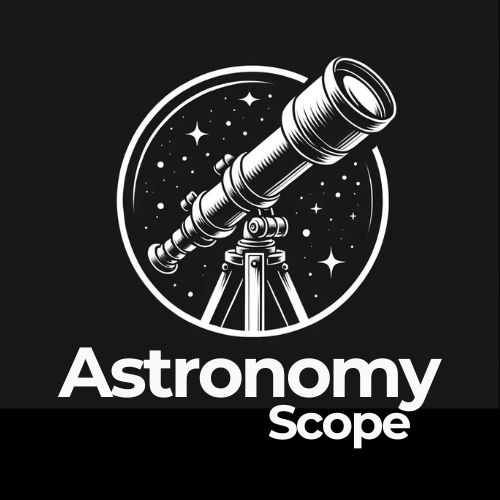We all know how important the moon is to us here on Earth. So naturally, some questions arise about our fate if it were ever to go. But what if the moon were to be destroyed? What would life be like without it? Or is it even possible for the moon to be destroyed? If so, how? Very interesting questions centered on a very interesting subject. So, why wait any longer? Let’s get some answers!
So, what would happen if the moon was destroyed? If the moon was destroyed, it would have a significant impact on life on Earth in a variety of ways. Our nights on Earth would be darker as we wouldn’t have a lot of natural light. Our tides would be weaker, our days would be shorter, and the Earth’s tilt would shift because the gravitational relationship between our home planet and the moon would be lost.
Oh, and you can forget ever seeing an eclipse again.
The truth is there would be a fundamental shift to life on Earth.
As we shall see in the next few sections!
If The Moon Was Destroyed What Would Happen To Earth?
If the moon was destroyed, Earth would have darker nights, the tides would lose strength, the Earth’s tilt would shift, days would be shorter, and there would be no eclipses.
So, quite a few things would happen if the moon was destroyed. Let’s go through each one separately.
Darker Nights
What is the moon most well known for? For lighting up our night sky, of course.
That’s why I always call the moon Earth’s very own night light.
Sometimes the moon isn’t visible, which is normally due to there being too many clouds in the sky.
But guess what? The moon is always there every night, without fail. Even if we can’t see it, its reflected light from the sun is still helping to offer some nocturnal illumination.
If the moon was destroyed, we would lose the moon, our precious night light, which would mean that nighttime would be even darker. There would be very little natural light at night.
So we’d be solely relying on artificial light made by us humans and that or a few sparkles from stars millions of miles away.
Now, whether or not you think this is a good thing will all depend on what you want in life.
If you like the darkness so you can sleep, then you might prefer there not to be a moon.
If you’re a stargazer, you also might prefer there not to be a moon as the rest of the night sky would become much clearer.
This would mean that you would be able to see stars more vividly.
I, personally, would think it to be a great tragedy if we lost the moon.
The moon is beautiful, and so too is moonlight. We can still see stars to some degree even when the moon is out, and improved sleep can come in a variety of ways too.
The Tides Would Change
The tides of the ocean are a fascinating natural phenomenon. These tides shift because of gravitational relationships between Earth, the moon, and also the sun.
As the moon orbits Earth, it also pulls on the oceans. Yes, that’s right. The moon determines whether the tide is in or out. Amazing, right?
If the moon was destroyed, we’d still have the tides go in and out to some degree because there are other gravitational relationships occurring, like that of the one with the sun.
But the moon is perhaps the most significant gravitational relationship there is when it comes to the tides.
So they certainly wouldn’t be as strong as they were pre-moon destruction.
This would, of course, most impact coastal areas and communities.
What the impact would be is hard to say specifically. But I don’t think it would be too positive.
After all, Earth is supposed to have a moon. Without it, life might become more difficult for these coastal communities.
Shifted Earth Tilt
The moon also has a relationship with the Earth’s tilt. It helps keep it steady at 23.5 degrees.
Why is it good to have a steady tilt? Well, it ensures that we enjoy stable seasons annually whilst the polar regions remain cold.
If the moon was destroyed, the Earth’s tilt would shift because that gravitational relationship between the two would be lost.
A disrupted tilt would mean that our annual season’s cycle would change drastically and not for the better.
Once again, it comes down to the fact that we have a moon. It’s there for a reason. In fact, several reasons. So don’t change it or destroy it; just let it help us out.
Days Would be Shorter
Listen, it’s not like the sun would start working overtime to cover for the moon’s absence. In fact, the sun would work for less time on Earth each day.
That’s because days would be shorter if we didn’t have a moon.
You see, the gravitational relationship between Earth and the moon doesn’t just regulate the tides and the Earth’s tilt; it also slows down the planet’s rotation.
Without a moon, Earth would rotate much faster, and days would only last 6 to 12 hours, which isn’t fun for anyone! We humans need our sunlight!
No Eclipses
Ever seen an eclipse? Well, if the moon’s destroyed, you won’t get a chance to. The moon is a fundamental element required for lunar and solar eclipses to occur.
Can Earth Survive Without The Moon?
Earth would probably find a way to survive without the moon, but life on the planet would change drastically. Because of this, we humans might find it difficult to survive on a moonless planet.
All of those consequences we just discussed in the previous chapter are very real.
The question is could Earth survive these consequences if the moon was destroyed? At the same time, could we, Earth’s inhabitants, survive without the moon?
Well, I think Earth could survive the darker nights. I also think we could, too, even if its absence would be a great loss.
Earth would also find a way to deal with the tides losing strength.
Again, so could we, but we would have to find a way to overcome any obstacles this threw at us.
Again, shorter days would be fine for Earth, but they’d upset us. Although, I don’t think there’d be too significant a danger to life.
And eclipses, well, they’re just for fun. So everyone could survive without them.
The key consequence would be that of the Earth’s tilt shifting.
The moon and its gravitational pull keeps the Earth tilted at a very specific angle.
As we discussed, this ensures that Earth experiences four different seasons throughout the year.
If the moon were destroyed, this title would shift drastically.
Instead of 4 seasons, we would likely see more extreme weather cycles, such as ice ages. That is where the threat to human life is.
Earth, I am sure, would get on with surviving. But for us humans, it would be tricky.
Has The Moon Ever Been At Risk Of Being Destroyed?
The moon has never been at risk of being destroyed, at least as far as we know and based on current evidence. The moon has withstood plenty of impacts, all whilst holding strong.
The moon has been around for some time. During that time, plenty of objects, like asteroids, for example, will have crashed into it.
But the moon is yet to be destroyed. It takes the impact and carries on.
Craters have developed after particularly strong impacts. Humans have also contributed to this as well.
Several years ago, a new crater formed on the lunar surface after a piece of space junk collided with it. It was basically a discarded rocket stage that had been floating in space for a while until it finally collided with the moon.
The rocket was destroyed, of course. But the moon survived but for a new crater in its lunar surface.
What Could Destroy The Moon?
You would need some sort of superweapon that could produce the amount of energy required to destroy the moon.
Scientists refer to the amount of energy required to dismantle a gravitationally held object as its binding energy.
The binding energy of the moon is 1.2 x 10^32 joules. If you can produce a weapon that can summon this amount of energy, then you have a weapon that can destroy the moon.
As far as I’m aware, no such weapon is available on the market right now.
But I’m sure it’s possible one day. After all, it takes approximately 1800 times more energy to destroy Earth than it does the moon. And right now, it seems like we’re getting pretty close to being able to do that!
What could produce such a vast amount of energy? Well, it would be the ultimate cosmic betrayal, but the sun could.
If you were able to somehow target all of the sun’s energy at the moon, our own night light would be destroyed within 15 minutes.
If you are a supervillain and you’re now considering destroying the moon, you might want to chill out for a moment.
Destroying the moon would probably send lots of debris crashing back down to Earth.
Finally
Now you know that the moon isn’t just a pretty face; it fulfills plenty of invaluable duties.
Destroying it would therefore be a disaster.
Other moon guides you may want to read:
- What Is The Moon Made Out Of?
- Why Can’t You See the Moon Every Night?
- Is There Gold On The Moon?
- Are There Diamonds On The Moon?
- Does The Moon Produce Its Own Light?
- Is The Moon Tidally Locked?

Hey, my name is Jeremy. I’m a passionate and seasoned astronomer who loves nothing more than observing the night sky. I also love researching, learning, and writing all things Space and the Universe. I created Astronomy Scope to share my knowledge, experience, suggestions, and recommendations of what I have learned along the way while helping anyone to get into and maximize their enjoyment of the hobby.

